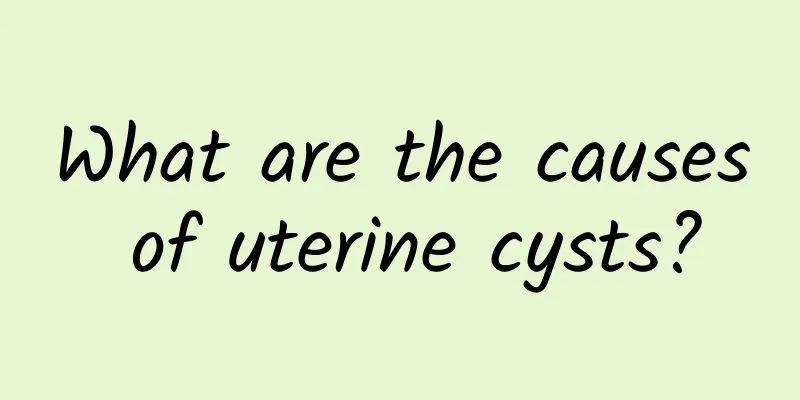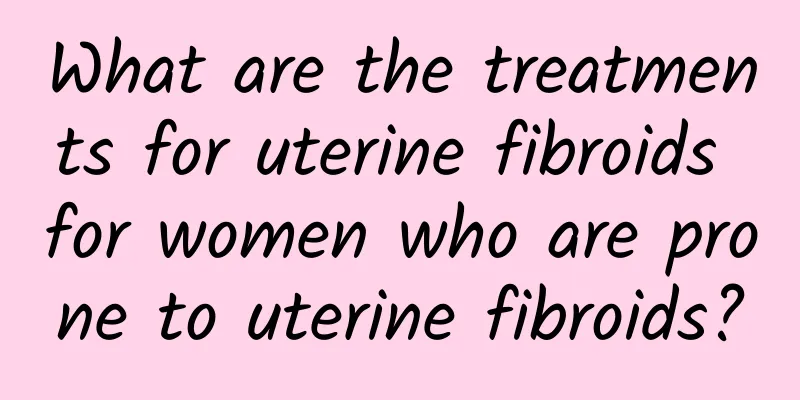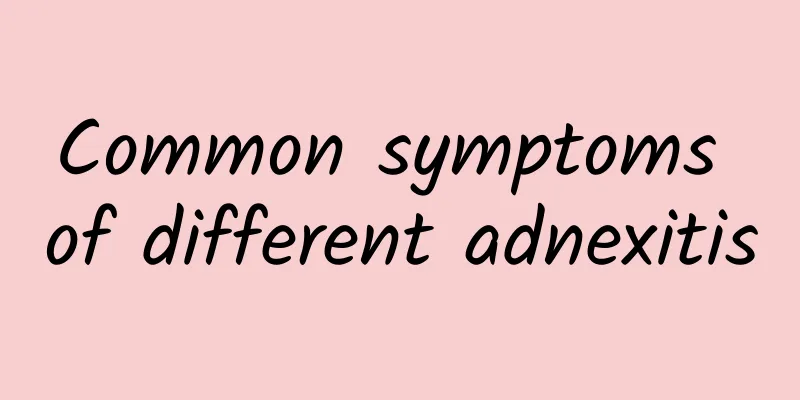What are the causes of uterine cysts?

|
The formation of uterine cysts is related to many reasons, including genetic factors, hormonal disorders, chronic inflammation and external environmental stimulation. Different individuals may develop cysts due to the superposition of multiple factors. Genetic factors may increase the risk of uterine cysts. If a female relative in the family has a similar disease, the individual's chance of developing the disease may increase. An imbalance in hormone levels is a common cause, especially when estrogen is too high or progesterone is insufficient, which may stimulate abnormal proliferation of uterine tissue and eventually form cysts. Chronic cervicitis, pelvic infection, etc. can also cause local tissue damage or hyperplasia, causing cysts. Endocrine disruptors in the daily environment, such as skin care products and food additives containing excessive chemical ingredients, may also participate in the formation of cysts by affecting the hormone system in the body. Genetic factors may increase the risk of uterine cysts. If a female relative in the family has a similar disease, the individual's chance of developing the disease may increase. An imbalance in hormone levels is a common cause, especially when estrogen is too high or progesterone is insufficient, which may stimulate abnormal proliferation of uterine tissue and eventually form cysts. Chronic cervicitis, pelvic infection, etc. can also cause local tissue damage or hyperplasia, causing cysts. Endocrine disruptors in the daily environment, such as skin care products and food additives containing excessive chemical ingredients, may also participate in the formation of cysts by affecting the hormone system in the body. In order to reduce the risk of uterine cysts, it is recommended to pay attention to the following points: maintain a regular work and rest schedule, reduce staying up late to maintain hormone balance; eat a balanced diet, take in enough vitamins and dietary fiber; avoid being affected by potential endocrine disruptors in the environment, such as reducing exposure to pollutants and hormone products. If you suspect that you have related symptoms such as lower abdominal pain or abnormal menstruation, you should seek medical attention in time, confirm the diagnosis through ultrasound examination, and develop a treatment plan under the guidance of a doctor. |
<<: Can uterine fibroids become cancerous?
>>: What is the chance of spontaneous abortion in cervical pregnancy?
Recommend
What are the dietary precautions for bacterial vaginosis
Patients with bacterial vaginosis have many dieta...
What is the best soup for people with uterine fibroids?
What should I put in chicken soup with uterine fi...
Hospitals with good results in treating threatened abortion in China
Everyone hopes to be able to choose a suitable ho...
What are the symptoms of chronic adnexitis?
Chronic adnexitis is one of the diseases that wom...
The treatment of uterine fibroids cannot be ignored
Modern medical research has found that the amount...
Will ovarian cysts go away on their own?
From a medical perspective, there are many types ...
How to prevent ovarian cysts in women
In order to effectively prevent ovarian cysts, wo...
A brief analysis of the three common treatment misunderstandings of chronic pelvic inflammatory disease
It is understood that there are some misunderstan...
Why does premature ovarian failure occur?
Premature ovarian failure refers to amenorrhea be...
Several common misunderstandings about ovarian cysts
There are some misunderstandings about ovarian cy...
Treatment of irregular menstruation in urban working women
With the progress of society, more and more urban...
Is it good to drink milk if you have Bartholin's gland?
Is it good to drink milk for Bartholinitis? Barth...
Which bacteria can cause nonspecific pelvic inflammatory disease?
As a common gynecological disease, pelvic inflamm...
Uterine fibroids small recipe
Uterine fibroids are a common benign tumor of the...
What are the dangers of cervical warts
Cervical warts are a very harmful disease that ca...









